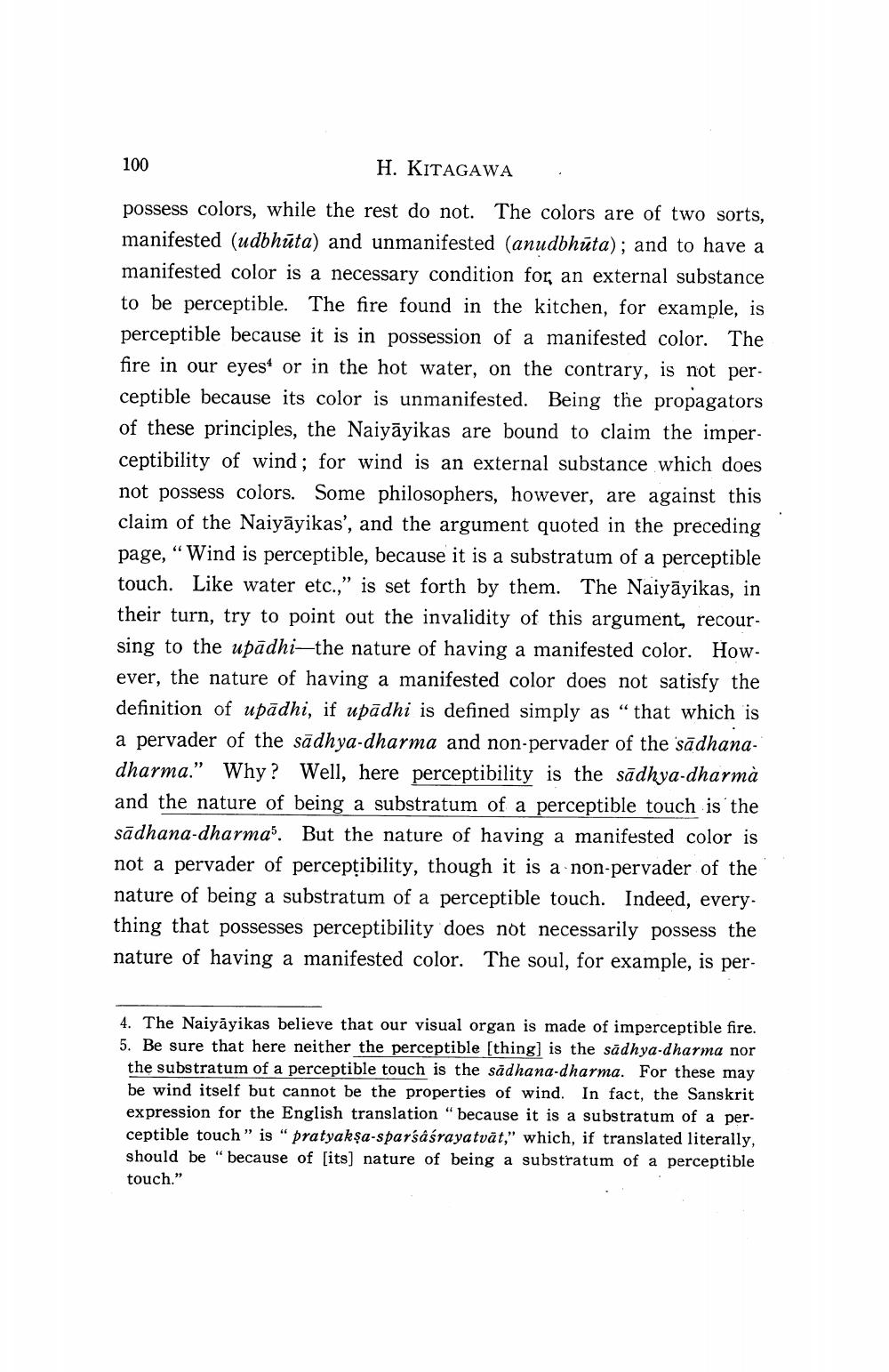Book Title: On Upadhi Author(s): Hidenori Kitagawa Publisher: Hidenori Kitagawa View full book textPage 4
________________ 100 H. KITAGAWA . possess colors, while the rest do not. The colors are of two sorts, manifested (udbhūta) and unmanifested (anudbhūta); and to have a manifested color is a necessary condition for an external substance to be perceptible. The fire found in the kitchen, for example, is perceptible because it is in possession of a manifested color. The fire in our eyes or in the hot water, on the contrary, is not perceptible because its color is unmanifested. Being the propagators of these principles, the Naiyāyikas are bound to claim the imperceptibility of wind; for wind is an external substance which does not possess colors. Some philosophers, however, are against this claim of the Naiyāyikas', and the argument quoted in the preceding page, “Wind is perceptible, because it is a substratum of a perceptible touch. Like water etc.," is set forth by them. The Naiyāyikas, in their turn, try to point out the invalidity of this argument, recour sing to the upādhi—the nature of having a manifested color. However, the nature of having a manifested color does not satisfy the definition of upādhi, if upādhi is defined simply as “that which is a pervader of the sādhya-dharma and non-pervader of the sādhanadharma." Why? Well, here perceptibility is the sādhya-dharmà and the nature of being a substratum of a perceptible touch is the sādhana-dharma'. But the nature of having a manifested color is not a pervader of perceptibility, though it is a non-pervader of the nature of being a substratum of a perceptible touch. Indeed, every. thing that possesses perceptibility does not necessarily possess the nature of having a manifested color. The soul, for example, is per 4. The Naiyāyikas believe that our visual organ is made of imperceptible fire. 5. Be sure that here neither the perceptible [thing) is the sādhya-dharma nor the substratum of a perceptible touch is the sādhana-dharma. For these may be wind itself but cannot be the properties of wind. In fact, the Sanskrit expression for the English translation because it is a substratum of a perceptible touch" is "pratyakşa-sparsâśrayatvät," which, if translated literally, should be "because of [its) nature of being a substratum of a perceptible touch.”Page Navigation
1 2 3 4 5 6 7 8 9 10 11 12 13
